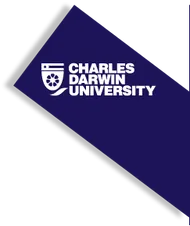Promoting Resilience in Higher Education
Background
Career Changers to Teaching
Terms used to describe people who turn to teaching after having experienced a different career include mid-career entrants[1] and second career teachers[2] and the more widely adopted term of career changers[3][4][5][6] . It is the latter term that we have adopted for our study as it acknowledges the previous career histories. Prior research of career changers to teaching includes studies into their motivations for coming to the profession[4], their prior assumptions about teaching[2], their lived experiences in schools[7] [5] and how identities and capacities for resilience are challenged and revised during initial classroom experiences[8]. The literature reveals also career changers are generally over 25 years of age, with a broad diversity of work and life experiences[2][9].
While career changers have always been present in the teaching profession, international numbers reveal that this group constitutes approximately one third of new graduates[10], while here in Australia that figure is closer to 47% in the primary schooling sector[11]. This is of particular interest to us as the participants in this study are career changers undertaking a Master of Teaching (Primary).
- Marinell, W. H., & Johnson, S. M. (2014). Midcareer Entrants to Teaching Who They Are and How They May, or May Not, Change Teaching. Educational Policy, 28(6), 743-779.
- Tigchelaar, A., Brouwer, N., & Korthagen, F. (2008). Crossing horizons: Continuity and change during second-career teachers’ entry into teaching. Teaching and Teacher Education, 24(6), 1530-1550
- Laming, M. M., & Horne, M. (2013). Career change teachers: pragmatic choice or a vocation postponed? Teachers and Teaching, 19(3), 326-343.
- Watters, J. J., & Diezmann, C. M. (2012). Identity development in career-changing beginning teachers: A qualitative study of professional scientists becoming school teachers. In AERA Annual Meeting, 13-17 April, 2012, Vancouver Convention Center, Vancouver. Unpublished.
- Varadharajan, M. (2014). Understanding the lived experiences of second career beginning teachers (Doctoral dissertation).
- Varadharajan, M., Carter, D., Buchanan, J., & Schuck, S. (2016). Understanding career change student teachers in teacher education programs.
- Crosswell, L., & Beutel, D. (2013). A bridge over troubling waters: a snapshot of teacher graduates' perceptions of their ongoing professional learning needs. Asia-Pacific Journal of Teacher Education, 41(2), 144-158.
- Crosswell, L. & Beutel, D. (2017) 21st century teachers: how non-traditional pre-service teachers navigate their initial experiences of contemporary classrooms. Asia-Pacific Journal of Teacher Education. http://dx.doi.org/10.1080/1359866X.2017.1312281
- Wolpert-Gawron, H. (2008). My brilliant second career. Teacher Magazine, 1-3.
- Reiter, T. D. (2008). Why we teach as a second career. Unpublished master’s thesis. Ohio University.
- McKenzie, P., Weldon, P. R., Rowley, G., Murphy, M., & McMillan, J. (2014). Staff in Australia’s schools 2013: Main report on the survey. Retrieved from http://research.acer.edu.au/tll_misc/20








